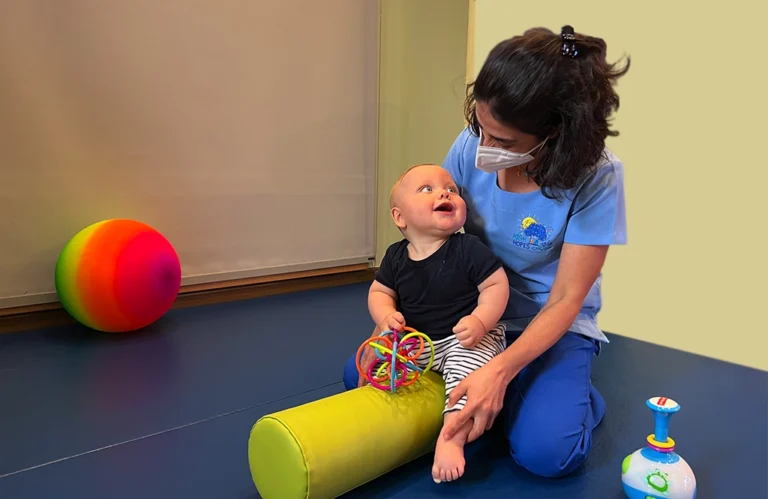Occupational Therapy
Delays in Fine Motor Skills
Sensory Processing Issues
Difficulty with Daily Activities
Children may require occupational therapy (OT) if they experience difficulties in the following areas:
- Fine motor skills: Trouble with tasks like writing, buttoning clothes, or using utensils.
- Gross motor skills: Struggles with balance, coordination, or tasks like climbing or jumping.
- Sensory processing: Sensitivity to sensory input (light, sound, touch) or difficulty responding to sensory information.
- Hand-eye coordination: Challenges in activities like catching a ball or copying from the board.
- Self-care skills: Difficulty with daily tasks such as dressing, brushing teeth, or feeding themselves.
- Cognitive skills: Struggles with problem-solving, following instructions, or attention span.
- Social skills: Difficulty interacting with peers or understanding social cues.
- Developmental delays: Lag in reaching developmental milestones compared to peers.
At Abilizone, Occupational therapy can help children improve these skills to enhance their daily functioning and independence.
Why Children requires occupational therapy (OT), What are the therapies it includes, are as follows:
Occupational therapy (OT) is a form of therapy aimed at helping children’s to develop, recover, or maintain the skills needed for daily activities.
Key points include:
- Goal: Helps child perform everyday tasks (e.g., dressing, eating, working, playing).
- Focus areas: Fine motor skills, cognitive functions, sensory processing, social skills, and self-care.
- Clientele: children with developmental delays and adults with physical or mental challenges.
- Approach: Uses therapeutic activities, exercises, and adaptations to improve independence.
- Tools and techniques: Adaptive equipment, hand therapy, sensory integration, and environmental modifications.
- Interdisciplinary collaboration: Often works with other healthcare professionals (e.g., physical therapists, speech therapists, doctors).
- Customized treatment: OT is personalized to each individual’s specific needs and goals, ensuring targeted interventions.
- Life skills training: Therapists often work on practical skills, such as money management, time management, or organizational skills, to promote independence.
- Rehabilitation: OT supports individuals recovering from injury, illness, or surgery to regain lost functions and return to daily life.
- Mental health: Occupational therapists also address mental health issues by helping clients manage stress, improve coping strategies, and enhance social interaction.
- Assistive technology: OT often incorporates the use of technology, such as communication devices or mobility aids, to assist clients with disabilities.
- Home and workplace adaptation: Therapists suggest modifications in homes or workspaces to ensure safety and ease of task performance, especially for individuals with physical limitations.
- Holistic approach: OT takes into account the person’s physical, emotional, and environmental needs to promote overall well-being.
At Abilizone Occupational therapy helps individuals lead a more independent and fulfilling life.
Call to Action
If you'd like to consult with us, feel free to reach out.






